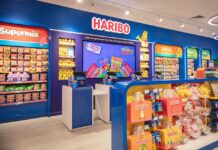The research forms part of leading ecommerce agency Visualsoft’s annual e-retail performance report, which assessed 250 of the UK’s leading brands across a range of sectors. It found that 17% of those analysed were missing out on valuable business by neglecting to add clear social sharing options for their customers’ purchases – a 4% decline year-on-year.
The figures are concerning, especially when taking into account that the report also found the average number of ecommerce social media followers has grown exponentially over the last 12 months – even doubling for networks such as Twitter, YouTube & Pinterest. Social networks are now the number one influencer for online customers, according to a survey by PWC.

More worryingly, Instagram has been left by the wayside. Despite its in-built shopping feature and inherent image sharing capabilities presenting a clear opportunity for retailers to connect with potential shoppers, Visualsoft reported that 2018 saw an average increase of just over 4,000 followers.
Head of social at Visualsoft, Daniel Dixon, said: “More and more people are using social media to research and influence their purchasing decisions. However, our research has found that, despite many social platforms offering features for brands to engage natively, the UK’s biggest retailers are failing to capitalise on this.
“Retailers should be ensuring that the facility for sharing purchases and wishlists is made as accessible as possible, to maximise the potential reach of the brand. By encouraging ‘user-generated content’, whereby customers share images of the products they have purchased, they can potentially connect with a far wider customer-base which has in some cases been left completely untapped.”

















